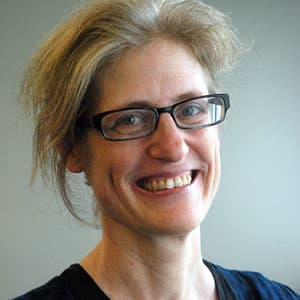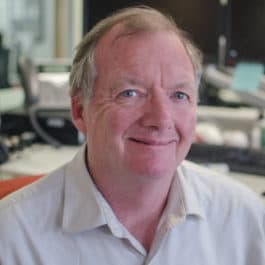Advertisement
How Boston's Poet Laureate feels the joy of Juneteenth through 'The Electric Slide'
Resume
Juneteenth commemorates the day in 1865 that the last known group of slaves, in Galveston, Texas, were finally freed, more than two-and-a-half years after the Emancipation Proclamation was ordered.
When Boston's Poet Laureate Porsha Olayiwola thinks of Juneteenth, she sees the national holiday as a celebration, but also as a reminder of oppression. She joined WBUR's Weekend Edition host Sharon Brody to reflect on the day and how some of her poetry reflects the holiday's themes.
Interview highlights
Highlights from this interview have been lightly edited for clarity.
On how she views Juneteenth:
"I really try to think of Juneteenth as it approaches really as a celebration of both Black joy and Black liberation. Obviously it's in the summer, it's one of the earlier summer holidays, and so it feels like a joyful time. I also like to think of it as almost a kind of jubilee and opportunity for a Black family reunion in that continued to struggle for liberation ...
"I think that the observation in and of itself of Juneteenth is really an opportunity for the rest of the country to kind of acknowledge the ways in which Black folk have been continuously and consistently left out of a struggle for liberation.
"Or if we think about Juneteenth in the context of American independence on July Fourth, thinking about who that excludes versus includes, I think just the observation of [Juneteenth] as a federal holiday sheds lights on that. And I think, and I hope, that in turn, not only is it a celebration of joy and of liberation, but also acknowledges that there is still a lot of work left to be done."
On how she sees Boston's climate of racial justice now:
"I think about Boston as being the place — one of the places — in which the nation was born, right? And so naturally, some of those other -isms — racism, classism — are also born here and are also historically old. But I also think about Boston as a city of independence and a fight for a revolution. And you know, this place is extremely intellectual and can naturally be the first place of progress for the country.
"And so I think about the Black experience in that context, right? This is [one of] the oldest and deeply rooted cities in our country and thus some of the struggle is also deeply rooted and almost integral into the infrastructure of the city. But with that also comes this possibility for liberation and revolution, to be that kind of beacon towards the rest of the country as well."
On how poetry can help people learn and heal:
"I think poetry can offer a bit of repair work, at least that we bring it to the forefront, that we discuss it. And I think poetry has this unique ability to allow humans to see other humans, and in turn, then see themselves.
"And so I think poetry that is centered on specifically Juneteenth, allows for other folks to kind of see into the Black American experience. ... [And] the poem can become a space for Black folks to simply gather within the page of the poem."
On her poems that resonate with Juneteenth themes:
"First, ironically untitled, is about the end of the Civil War and Black folks having freedom, and more specifically the freedom to choose their names and what the historical context of naming and naming oneself means for Black folk, especially at that intersection of liberation.
"And then the other, which is one of my favorite, is just explicitly about joy, and it's about 'The Electric Slide.'
"I think 'The Electric Slide' is one of those things that always happens at a Black jubilee celebration, but the poem reimagines 'The Electric Slide' as a vehicle for liberation and for transportation into Black joy.
"It's almost a thing that needs to be done with community ... it's something that we can buss out in together simply by way of looking at each other and all-knowing the moves, and that in and of itself [is] a kind of transportation into jubilee."
An excerpt from Olayiwola's "The Electic Slide is Not a Dance, Man!":
"...This pattern is a shield against depression or hunger hanging out of someone's blue eyes. Our bodies arrange a constellation in memory of the boy who was slain with no indictment, for the guillotined girl who went forgotten, for the housing stacked like the gut of the ship, the dogs and the waters. The blast off happens insync and our spirits rupture ceilings. We ritual. Sacred. Secret. Originators of a beat cascading. The electric slide is how we leave here, how we ascend. This kinship is how we get to a place named joy, and go home. That's blood, history, man. Ain’t no teaching that."
You can catch Porsha Olayiwola this Juneteenth at Historically Black Phrases Live! A Black culture trivia game show experience at WBUR’s CitySpace, in partnership with The Emancipator. The event starts at 7 p.m. on Wednesday, June 19. Find tickets and more information here.
This segment aired on June 17, 2024.

